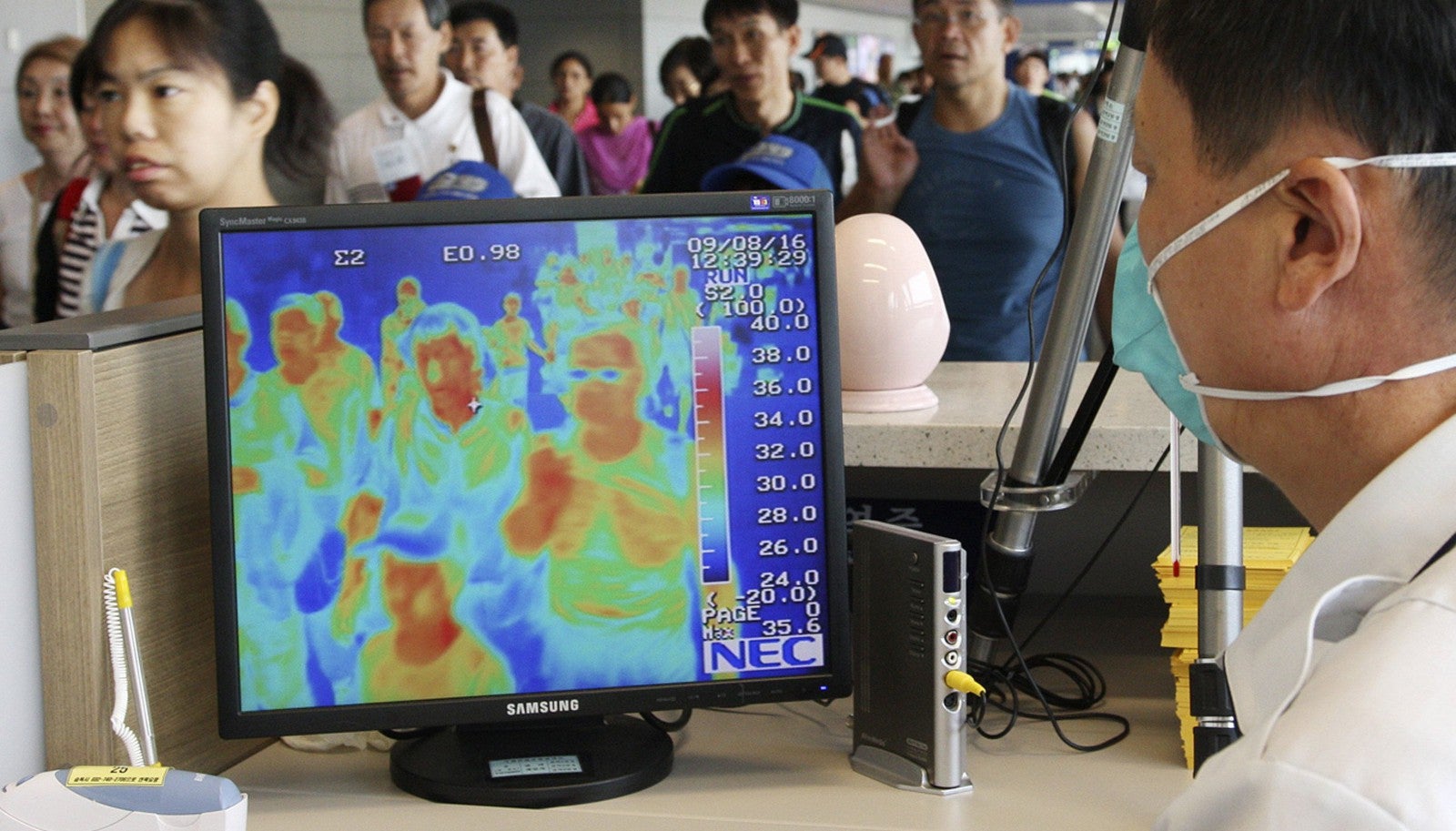A deadly SARS-like virus has jumped from the Middle East to East Asia
On May 20, South Korean officials confirmed what was Asia’s first-ever case of a potentially deadly coronavirus called Middle East Respiratory Syndrome (MERS). Just nine days later, MERS has already sickened nine in Korea—and has spread to China.


On May 20, South Korean officials confirmed what was Asia’s first-ever case of a potentially deadly coronavirus called Middle East Respiratory Syndrome (MERS). Just nine days later, MERS has already sickened nine in Korea—and has spread to China.
Earlier today, Chinese health authorities announced that a South Korean man hospitalized in mainland China tested positive for MERS, reports the South China Morning Post (paywall). Meanwhile, a woman who had traveled on the same May 26 flight as the man was rushed to another Hong Kong hospital with MERS-like symptoms.
The mysterious disease was first identified in Saudi Arabia in 2012, which is probably when the virus leapt from an animal to a human. Since then, it has spread to at least 20 other countries, and has killed more than 400 people.
MERS bears some similarities to severe acute respiratory syndrome (SARS), the virus whose 2003 outbreak killed nearly 750 people, sickened more than 8,000, and sapped $40 billion from the global economy. Both are “coronaviruses”—viruses that mainly infect the lungs and gastrointestinal tract—that are transmitted from animal host reservoirs. In SARS’ case, bats; for MERS, it’s likely camels.
MERS, however, causes lungs to shut down much more quickly than SARS. While only about 8% of SARS patients die, the MERS mortality rate ranges from 30% to 40%.
The good news is that MERS is generally easy to contain. Scientists think MERS spreads less efficiently among humans than SARS. Most reported cases have been of people who live in or recently traveled in the Arabian Peninsula, as well as those in close contact with the recently infected (for example, healthcare workers and family). This is probably why MERS hasn’t yet spread dramatically within a human community.
Unfortunately, the just-diagnosed South Korean man had done a lot of traveling before he was diagnosed, and come into contact with a lot of other travelers. It seems that he had contracted the virus from his father in Seoul on May 16. When his flight from Seoul landed in Hong Kong on Tuesday, airport medical officers say he was already coughing and feverish (he denied having contact with any MERS patients or having visited any hospitals with MERS patients, which is apparently why the medical authorities let him go).
Some 165 other passengers shared the flight with him, 10 of whom immediately crossed the Hong Kong border into Shenzhen. After arriving in Hong Kong on May 26, the patient took a bus to Huizhou, a city in Guangdong province, where he was quarantined and tested. The Hong Kong health ministry says 120 people who came into contact with the South Korean man are now being monitored for MERS, according to SCMP.